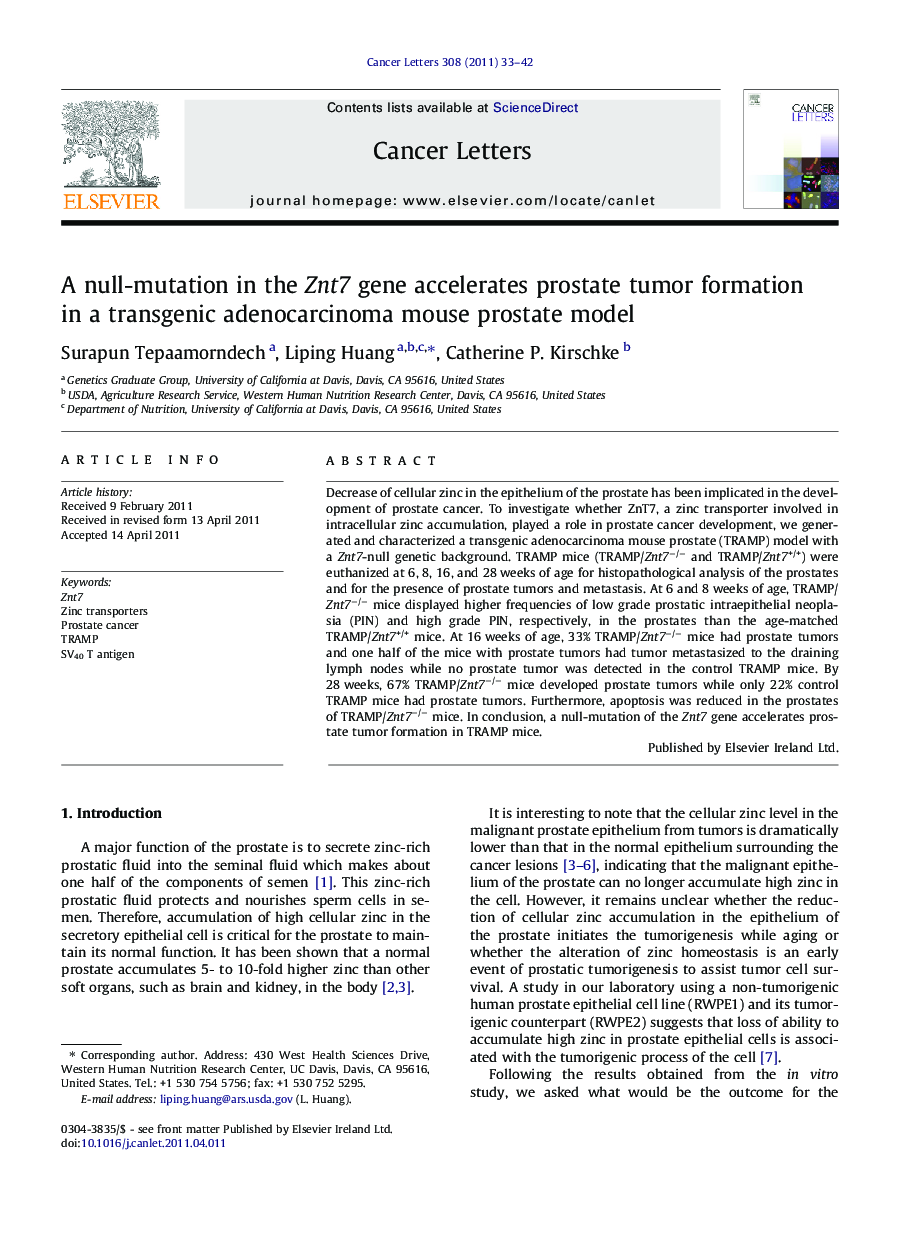| Article ID | Journal | Published Year | Pages | File Type |
|---|---|---|---|---|
| 2116381 | Cancer Letters | 2011 | 10 Pages |
Decrease of cellular zinc in the epithelium of the prostate has been implicated in the development of prostate cancer. To investigate whether ZnT7, a zinc transporter involved in intracellular zinc accumulation, played a role in prostate cancer development, we generated and characterized a transgenic adenocarcinoma mouse prostate (TRAMP) model with a Znt7-null genetic background. TRAMP mice (TRAMP/Znt7−/− and TRAMP/Znt7+/+) were euthanized at 6, 8, 16, and 28 weeks of age for histopathological analysis of the prostates and for the presence of prostate tumors and metastasis. At 6 and 8 weeks of age, TRAMP/Znt7−/− mice displayed higher frequencies of low grade prostatic intraepithelial neoplasia (PIN) and high grade PIN, respectively, in the prostates than the age-matched TRAMP/Znt7+/+ mice. At 16 weeks of age, 33% TRAMP/Znt7−/− mice had prostate tumors and one half of the mice with prostate tumors had tumor metastasized to the draining lymph nodes while no prostate tumor was detected in the control TRAMP mice. By 28 weeks, 67% TRAMP/Znt7−/− mice developed prostate tumors while only 22% control TRAMP mice had prostate tumors. Furthermore, apoptosis was reduced in the prostates of TRAMP/Znt7−/− mice. In conclusion, a null-mutation of the Znt7 gene accelerates prostate tumor formation in TRAMP mice.
► An adenocarcinoma mouse prostate model with a Znt7-null mutation was generated. ► Rates of prostatic intraepithelial neoplasia were higher in Znt7-null TRAMP mice. ► Znt7-null TRAMP mice developed primary and metastasized prostate tumors faster. ► Apoptosis in the prostate of Znt7-null TRAMP mice was reduced.
